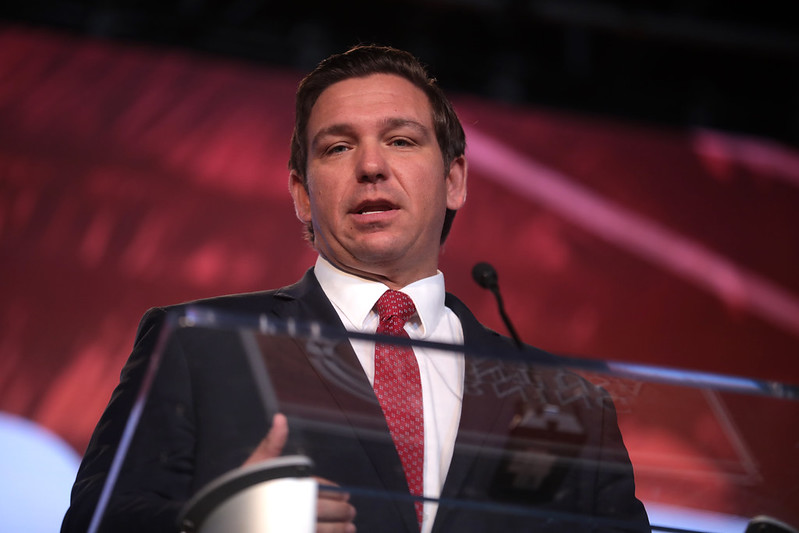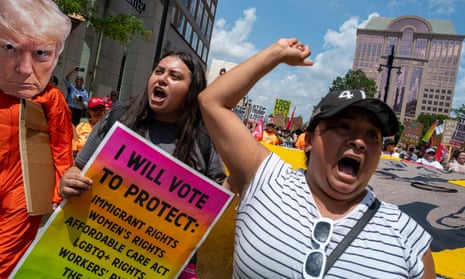In recent years, Florida has faced heated political debate over laws addressing public demonstrations and the rights of drivers who encounter protesters on roadways. The controversy stems largely from legislation signed in 2021 and the ensuing political rhetoric, including public statements by Governor Ron DeSantis that have drawn national attention and criticism.

The “Anti-Riot” Law and Its Provisions
The legislation in question is Florida House Bill 1 (HB 1), commonly referred to as the “anti-riot” law. Signed by Governor DeSantis in April 2021, HB 1 was introduced following nationwide protests in 2020. The law’s supporters argued it was designed to maintain public safety and deter violence during demonstrations, while opponents said it threatened First Amendment rights and encouraged excessive policing of dissent.
According to the text of HB 1, the law:
-
Increases penalties for crimes committed during riots (defined in the bill).
-
Creates new crimes related to “mob intimidation” and damaging memorials.
-
Makes it harder for local governments to reduce police budgets.
-
Shields local governments from liability if they refuse to reduce law enforcement in protest situations.
-
Contains a controversial civil liability provision protecting drivers from lawsuits if they injure or kill someone blocking the road while fleeing for safety.
The text specifies that civil immunity applies if the driver was “fleeing for safety from a mob” and did not act with intent to harm. This was widely reported by outlets such as the Tampa Bay Times, Miami Herald, and national media like NPR (NPR, April 20, 2021).
Governor Ron DeSantis’s Public Position
Governor DeSantis has repeatedly defended the law, describing it as a necessary measure to protect public order. At the bill signing in 2021, he stated:
“This legislation strikes the appropriate balance of safeguarding every Floridian’s constitutional right to peacefully assemble, while ensuring that those who hide behind peaceful protest to cause violence in our communities will be held accountable.”
(Source: Office of Governor Ron DeSantis, April 19, 2021 press release.)

Key Context for the Driving Immunity Clause
The specific part of HB 1 that generated the most controversy related to civil immunity for drivers whose vehicles hit protesters blocking a road if they were fleeing danger.
Florida’s statute does not grant unrestricted permission to “run over protesters” at will. Instead, it states that drivers cannot be held civilly liable if they injure or kill someone while “fleeing for safety from a mob,” provided they were not acting with intent to cause harm. This language aims to address scenarios in which drivers feel threatened by groups surrounding their vehicle.
Legal experts and civil rights organizations have challenged the provision, arguing it may encourage reckless driving through crowds of protesters or chill the right to protest altogether. Supporters counter that it merely protects drivers caught in potentially violent situations from facing lawsuits for defending themselves.
Court Challenges and Injunctions
In September 2021, parts of Florida’s anti-riot law were temporarily blocked by a federal judge. Chief U.S. District Judge Mark Walker issued a preliminary injunction against enforcement of the riot definition in the law, ruling it was too vague and risked criminalizing peaceful protest. The immunity for drivers was not directly enjoined in that ruling, but it remained part of the broader legal battle.
(Source: AP News, September 9, 2021.)
Renewed Political Controversy in 2025
While the core law was signed in 2021, Governor DeSantis’s comments have periodically reignited controversy. In June 2025, during an appearance on the Dave Rubin Report (a popular podcast), he reiterated support for the driver immunity provision. According to coverage by Florida Politics and direct video of the interview, he said:
“If someone surrounds your vehicle and you believe your life is at risk, you can get out — even if someone gets hurt.”
Critics, including Democratic lawmakers and civil rights advocates, condemned this rhetoric as dangerous and irresponsible. They argued that such statements could encourage vigilantism or be interpreted as a green light to harm demonstrators.
Organizations like the American Civil Liberties Union (ACLU) of Florida and local Democratic leaders issued statements calling for accountability and demanding political action. Some called for censure or even removal from office, though there is no formal or active impeachment process underway in the Florida Legislature as of this writing.
How the Law Has Been Reported in the Media
Major reputable outlets have consistently described the law as controversial, with strong opposing views:
-
Reuters called it a “sweeping ‘anti-riot’ law” that DeSantis said would “stand up for the rule of law,” while critics said it was designed to “chill speech.”
-
NPR highlighted the driver immunity clause in its April 2021 coverage, clarifying that it shields drivers from civil lawsuits if they are fleeing perceived danger.
-
Tampa Bay Times provided extensive reporting on the legislative debate, including concerns from Democratic lawmakers about potential misuse.
These reports all agree that the law does not explicitly authorize drivers to intentionally harm protesters for blocking a street without any threat. Rather, the civil immunity is narrowly defined around claims of fleeing perceived danger.
Political Reactions and Calls for Accountability
Democratic legislators in Florida have repeatedly introduced measures to repeal or amend HB 1. While these efforts have not succeeded in the Republican-controlled legislature, the issue remains a prominent part of state political debates.
After DeSantis’s June 2025 remarks, critics renewed calls for repeal, investigations, or other political responses. Human rights groups and civil liberties organizations argued that the Governor’s language was reckless and risked escalating tensions between protesters and the public.
Supporters of DeSantis, on the other hand, have defended both the law and his statements as straightforward public safety measures. They argue that drivers should not be forced to choose between legal liability and self-defense if confronted by violent crowds.
Conclusion
Florida’s HB 1, signed in 2021 and championed by Governor Ron DeSantis, continues to be a lightning rod for political and legal debate. The law’s civil immunity provision for drivers fleeing violent demonstrations has been one of its most controversial aspects. While it offers protection against civil lawsuits for drivers who can prove they were acting out of fear for their safety, opponents warn it risks encouraging dangerous behavior on crowded streets.
Governor DeSantis’s public remarks defending the provision — including those made in June 2025 — have fueled demands from political opponents for stronger checks on his power, policy reform, and in some cases calls for his removal from office. However, there is no formal impeachment or removal process actively underway in the legislature.
As the 2026 election cycle approaches, Florida’s “anti-riot” law and the political debate it has provoked remain central issues shaping the state’s contentious political landscape.
Sources :
-
Florida House Bill 1 (2021) official text
-
Office of Governor Ron DeSantis, official press releases
-
NPR, Reuters, AP News, Tampa Bay Times coverage of HB 1
-
ACLU of Florida public statements
-
Federal court ruling (Chief U.S. District Judge Mark Walker, September 2021)


